Every year, lakhs of female Olive Ridley turtles arrive at India's west and east shores during nesting season. Experience this amazing natural phenomenon
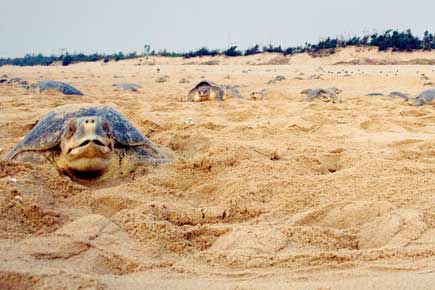
India’s vast shoreline is home to several species of flora and fauna. One such interesting creature is the Olive Ridley sea turtle. Chetan Rao, a research associate with Dakshin Foundation, an organisation that works on marine issues, tells us, “In India, Olive Ridley turtles come to the shore for the nesting period between late February and early March, along the entire coastline —from Gujarat to West Bengal.”
ADVERTISEMENT
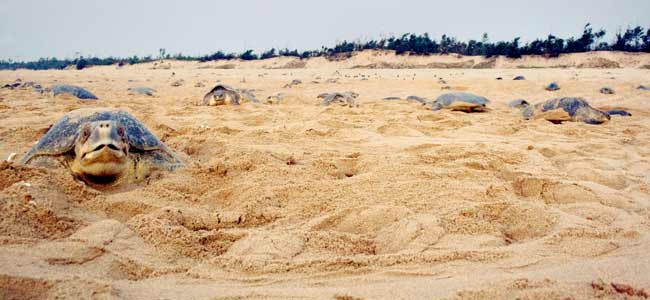
Pic courtesy/Chetan Rao
There are sporadic nesting sites where they come in few numbers and mass nesting sites. The mass nesting is known as Arribada (Spanish: arrival). In India, mass nesting occurs at Rushikulya and Gahirmatha in Odisha. Rao is currently in Rushikulya for a monitoring project of the mass-nesting site.
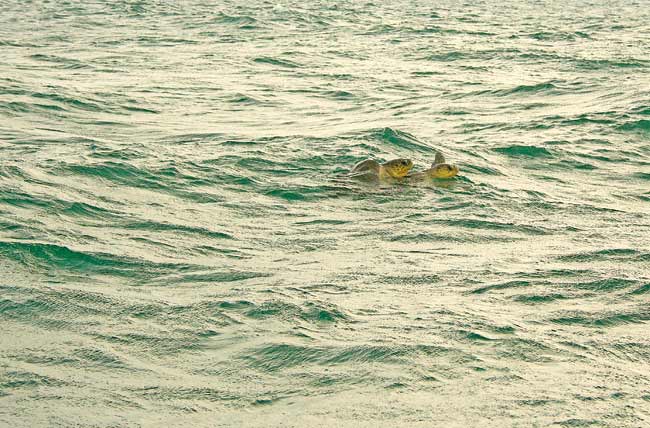
The mating ritual at sea is a rare visual. PICS COURTESY/CHETAN RAO
An area is known as a mass-nesting site if there are 100 or more sea turtles on the beach nesting, simultaneously. Rushikulya sees one-lakh arrivals, once every few years.
Mating ritual
Male Ridley turtles don’t come on the beach and live all their lives under the sea, only seen on the surface during mating season. So it is the female turtles who arrive to lay eggs (as many as 100 per turtle, of which only one or two survive) on the beach with nests dug using their back flippers.

Though it looks like the turtle sheds tears, it is secretion of excessive salts from the body
“After the eggs are laid, they start hatching after 45 to 60 days, now that the nesting period is over here, the hatchlings can be seen by early April,” he adds.
Nesting nook
During mass nesting there is a scramble for space; hence, several nests end up being dug by other turtles. This leads to the eggs being spoilt too. If one holds the egg against light, the embryo has to be on top and the nutrient sack at the bottom. If it isn’t in this order, the egg is spoilt,” informs Rao.
Closer home, in Velas...
If you wish to spot little Olive Ridley turtles right here in Maharashtra, you’re in for a treat. Head to the Velas Turtle Festival, in Ratnagiri district, where the hatchlings are set to make their way into the Arabian Sea. Velas is a small village, which is famous for the Olive Ridley turtle population that visits its beach every year and lays eggs. The eggs are conserved and protected there and the hatchlings are then released in the sea in the month of March. The hatchlings are released into the sea in batches; this makes for an amazing and pleasing sight. Hatchlings are sent to sea in the morning and the evening, so you can choose the time when you wish to witness this activity.
—Ruchika Kher
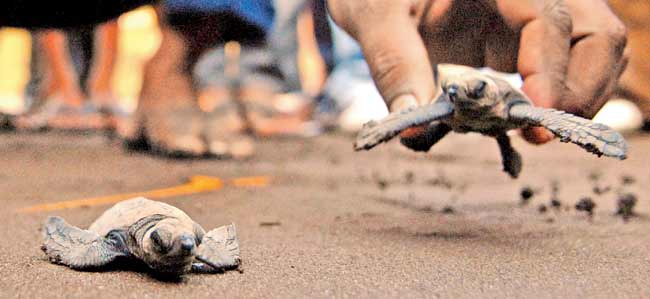
Olive Ridley turtles released into the Arabian Sea at Velas Beach. Pic/Shadab Khan
Ridley radar
>> The gender of the hatchling depends on the temperature in which it is incubated in the nest. If it is too high or low from the right temperature, all the hatchlings would either end up as male or female, which is not good for their balance.
>> Turtles are usually only spotted in two states of their life span — adults for nesting and hatchlings, rest they live under the sea. No body can predict where the hatchlings end up as their shells are too delicate to be tagged for research. Hence the middle years (during which we don’t know what they look like) are known as the Lost Turtle Years.
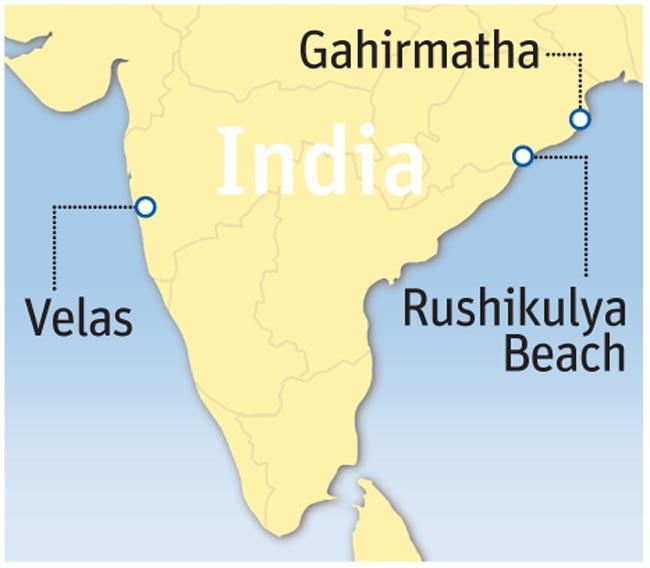
 Subscribe today by clicking the link and stay updated with the latest news!" Click here!
Subscribe today by clicking the link and stay updated with the latest news!" Click here!






